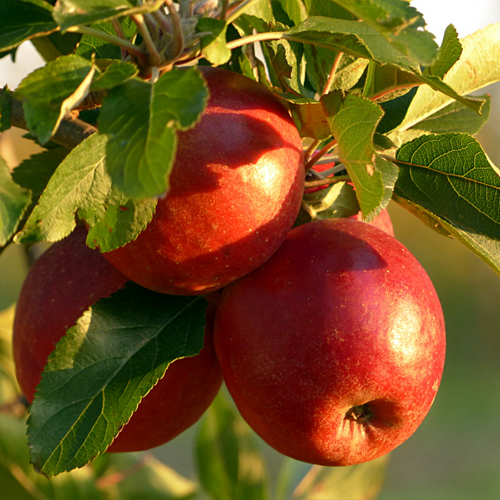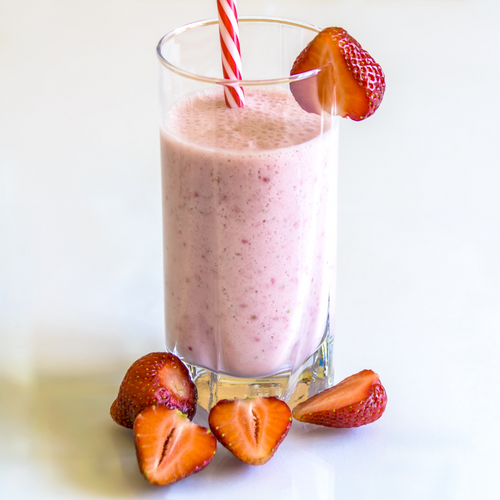Practicing regular physical activity is essential to maintaining good health. Physical activity includes all physical expenditure that we may have during the day (sitting, walking, climbing stairs, household chores, etc.) as well as sporting activity.
What you must remember:
- Sport allows greater blood flow to the digestive muscles.
- It allows better absorption of nutrients and improves the balance of the microbiota.
- Excessive sports practice leads to various digestive disorders as well as an imbalance of the microbiota.
- For optimal sports practice, ensure you have a balanced diet and wait 2-3 hours after a meal.
- Food supplements are sometimes essential for good digestion.
The benefits of sports practice on digestion
Digestion is a complex process that involves different organs of the digestive system. The digestive flora, also called intestinal microbiota, is responsible for the proper maintenance of this system. Due to its richness in micro-organisms, called probiotics which feed on prebiotics , it allows regulation of transit, optimal functioning of the immune, cerebral and metabolic systems.
However, due to our current lifestyles, digestion can be disrupted by many factors. There are therefore many solutions to take care of it and practicing physical activity is one of them.
#1 – An increase in blood flow
When practicing a sport or a more traditional physical activity, a reorganization of blood flow occurs. An increase in heart rate will allow a better blood supply and therefore oxygen to the muscles including the intestinal muscles.
Our sports and digestion advice : practice moderate physical activity while adding, from time to time, targeted exercises for the abdominals in order to activate the digestive organs located there. It can also help combat constipation.
#2 – Better absorption of nutrients
Physical activity causes contraction of the intestinal muscles, which promotes the absorption of nutrients during digestion. Likewise, when sports practice is moderate and integrated into a balanced lifestyle, this helps maintain a balance of the microbiota. However, the microbiota is involved in the nutrient absorption process.
Our sports and digestion advice : avoid practicing physical activity right after a meal or a large snack.
#3 – A change in the composition of the microbiota
According to numerous scientific studies, practicing sport is associated with a modification of the composition and compounds produced by the intestinal microbiota . Indeed, the more the maximum oxygen consumption, called VO 2 max, increases, the more the concentration of good bacteria in the microbiota as well as the production of beneficial compounds (butyrate) also increases. This VO 2 max is a reflection of the physical condition of an individual.
Likewise, the microbiota has been shown to also influence athletic performance . These two parameters therefore influence each other.
Our sports and digestion advice : vary between endurance and strength sports and practice sports regularly, 2-3 times a week if you can, for lasting beneficial effects on the microbiota.
However, even if sport improves digestion, at high intensity it can be harmful to the body.
The negative effects of intensive sports practice
A lack of physical activity can be associated with a sluggish and impaired digestive system. However, on the contrary, intensive practice can also lead to disorders of the body.
#1 – Stomach pain
Stomach pain during physical exertion is unfortunately quite common. They can be due to several factors: volume of meals ingested, slow digestion, positions of certain sports exercises, etc. During intense sports practice, approximately 80% of blood flow from the digestive system is redirected to the active muscles . In addition, certain sports will make the body move intensely, which can release accumulated gas and create painful bloating .
#2 – Digestive disorders
As with the stomach, intense sports practice causes a significant reduction in blood flow to the intestinal level, which can lead, in some people, to digestive disorders , due to poor digestion, such as diarrhea .
#3 – An increase in intestinal permeability
Recent scientific studies have highlighted the possibility of translocation, that is to say a movement of microbiota bacteria during and after intense physical effort. This may be the cause of a local inflammatory reaction which alters the composition of the microbiota as well as the intestinal wall.
Ultimately, this alteration creates intestinal porosity or intestinal hypermeability responsible for digestive disorders, poor absorption of nutrients and a weak immune system .
However, even if this type of problem can arise, the characteristics which influence this are still too little known. Indeed, in scientific studies, the location of sports practice and the lifestyle of athletes are not always taken into account or evaluated. The only parameter that is highlighted as being able to exacerbate intestinal disorders, apart from eating habits, is high temperature.
3 golden rules to protect your digestion during sports
#1 – Wait 2-3 hours before exercising
Food ingested can spend an average of 4 hours in the stomach . This is why it is important to practice physical or sporting activity at least 2-3 hours after the last meal . However, whether it is a meal or a snack, the time spent in the stomach depends on the composition of the food. The richer the meals are in fiber, starches and proteins, the longer they will take to digest and can cause acid reflux.
#2 – Adopt a suitable eating routine
A balanced and diversified diet is essential for proper digestion and maintaining a good balance of the microbiota. Indeed, good eating habits with the consumption of raw, fresh, local and seasonal products will allow better digestion and peaceful sports practice.
Limiting meals that are too fatty , copious or composed of ultra-processed products contributes to a balance in digestive and overall health.
#3 – Adopt food supplements
For some people, a balance of diet and lifestyle is not enough to maintain optimal digestion. This is why it is advisable to supplement with various food supplements. At DIJO, we have developed a whole range of products dedicated to digestive disorders which will help regulate the machinery, restart digestion or reduce discomfort. Probiotics are essential products that will help balance the intestinal flora and strengthen the intestinal barrier. They will help promote an acid-base balance while reducing inflammation that may be present during intense sporting activity.
While our phytotherapy belly care products will target specific problems, such as constipation, gas, swollen stomach, etc.
Sources :
[1] de Oliveira, EP, & Burini, RC (2009). The impact of physical exercise on the gastrointestinal tract. Current opinion in clinical nutrition and metabolic care, 12(5), 533–538. https://doi.org/10.1097/MCO.0b013e32832e6776
[2] Costa, RJS, Snipe, RMJ, Kitic, CM, & Gibson, PR (2017). Systematic review: exercise-induced gastrointestinal syndrome-implications for health and intestinal disease. Alimentary pharmacology & therapeutics, 46(3), 246–265. https://doi.org/10.1111/apt.14157
[3] Peters, HP, De Vries, WR, Vanberge-Henegouwen, GP, & Akkermans, LM (2001). Potential benefits and hazards of physical activity and exercise on the gastrointestinal tract. Gut, 48(3), 435–439. https://doi.org/10.1136/gut.48.3.435
[4] Wilson, P.B., Fearn, R., & Pugh, J. (2023). Occurrence and Impacts of Gastrointestinal Symptoms in Team-Sport Athletes: A Preliminary Survey. Clinical journal of sport medicine: official journal of the Canadian Academy of Sport Medicine, 33(3), 239–245. https://doi.org/10.1097/JSM.0000000000001113
[5] Mańkowska, K., Marchelek-Myśliwiec, M., Kochan, P., Kosik-Bogacka, D., Konopka, T., Grygorcewicz, B., Roszkowska, P., Cecerska-Heryć, E., Siennicka , A., Konopka, J., & Dołęgowska, B. (2022). Microbiota in sports. Archives of microbiology, 204(8), 485. https://doi.org/10.1007/s00203-022-03111-5
[6] Chantler, S., Griffiths, A., Matu, J., Davison, G., Jones, B., & Deighton, K. (2021). The Effects of Exercise on Indirect Markers of Gut Damage and Permeability: A Systematic Review and Meta-analysis. Sports medicine (Auckland, NZ), 51(1), 113–124. https://doi.org/10.1007/s40279-020-01348-y



















